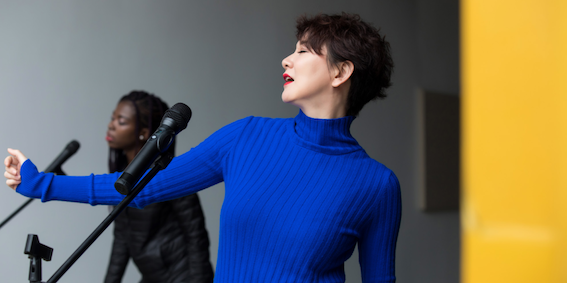Huang Fangling, an artist from Shanghai, is currently a student from IMA Low Res Program, a joint program launched by Tisch School of the Arts and NYU Shanghai. Her latest play, Letter to a Child Never Born, premiered at the Shanghai Dramatic Arts Center on December 24, 2021 and was widely acclaimed. Adapted from the novel written by the Italian journalist and writer Oriana Fallaci, this play is directed by Zhou Ke, award-winning director in China, and features Huang Fangling as one of the leading actors. Recently, The Office of Graduate and Advanced Education at NYU Shanghai interviewed Huang Fangling about her performing experiences, motivations of joining the program, and the new insights she gained from the program.
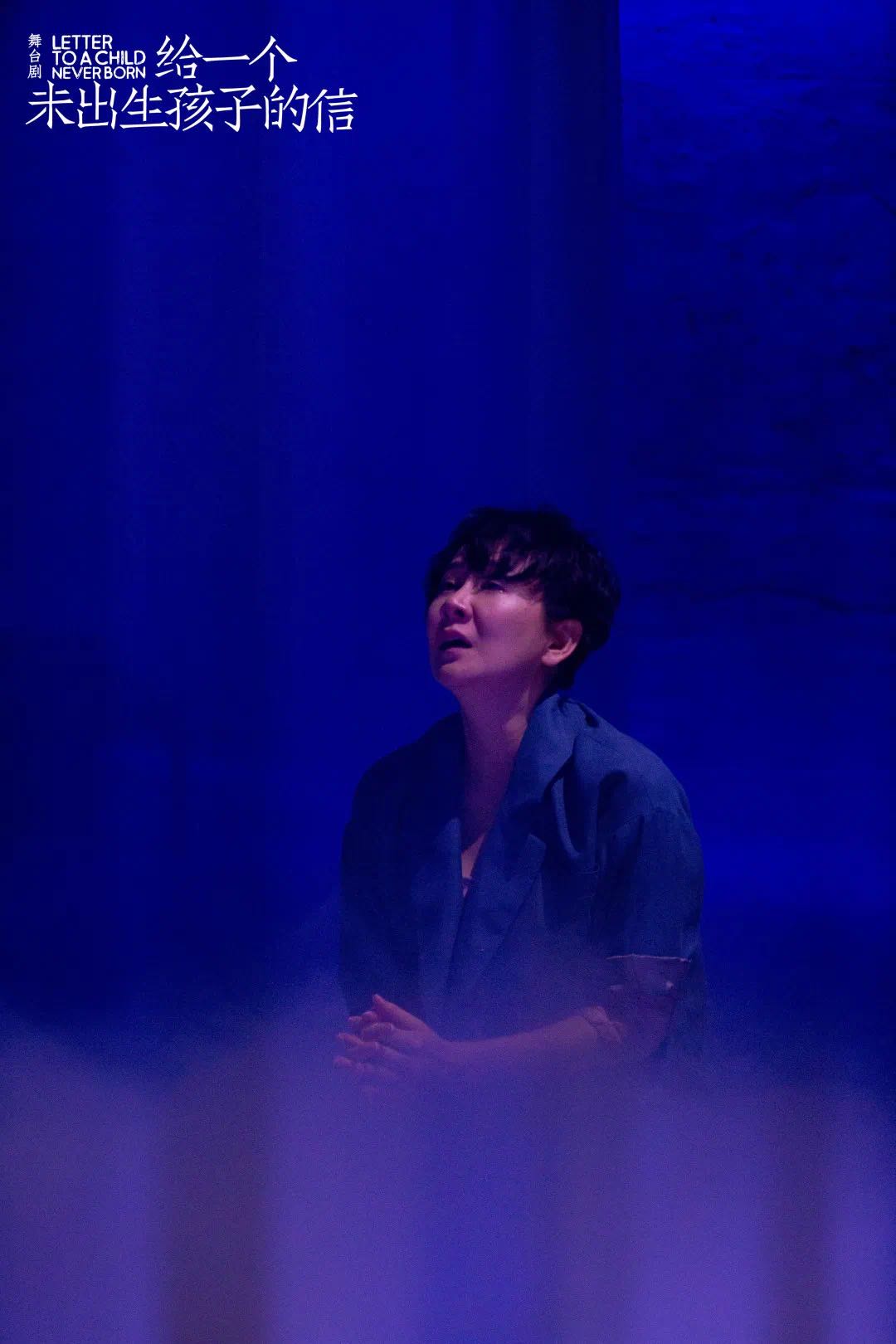
Stage Photo of Letter to a Child Never Born
Perceiving, Thinking, Creating
Fangling has extensive experience in art performance. In theater, she is a role-playing actress; in exhibition, she is an artist. Although she also acts, the whole exhibition is her original work, filled with her thoughts and creativity. She defines “artists” in this way: “‘Artist’ is not self-flattering. It is just another profession. In the discourse of contemporary art, artists are a group of people who keep thinking and breaking their own limits."
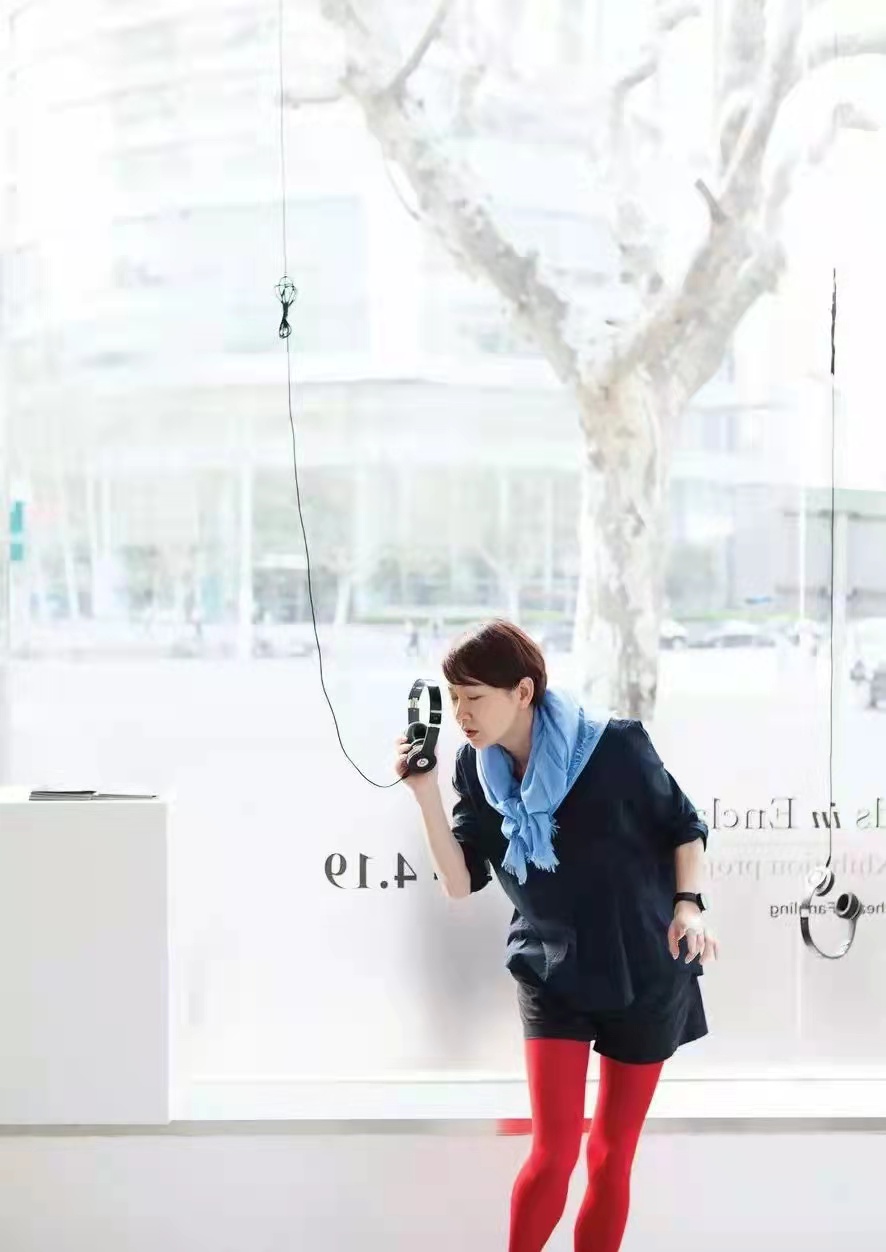
In theatrical performance, Fangling is a role-playing actress, injecting life and authenticity into characters. She collaborated with director Zhou Ke on a play named Hudec, which was performed at Wuzhen Theater Festival. The play was an ensemble piece. "I play the role of Mrs. Hudec. She looks tough on the outside but is gentle on the inside, whom I seeped into my being," Fangling says, "when there is a change of setting, I might make a cameo appearance as a historical figure, such as standing on a three-meter high platform as Hitler." Such a role shift occurred again in Fangling's most recent play, Letter to a Child Never Born.
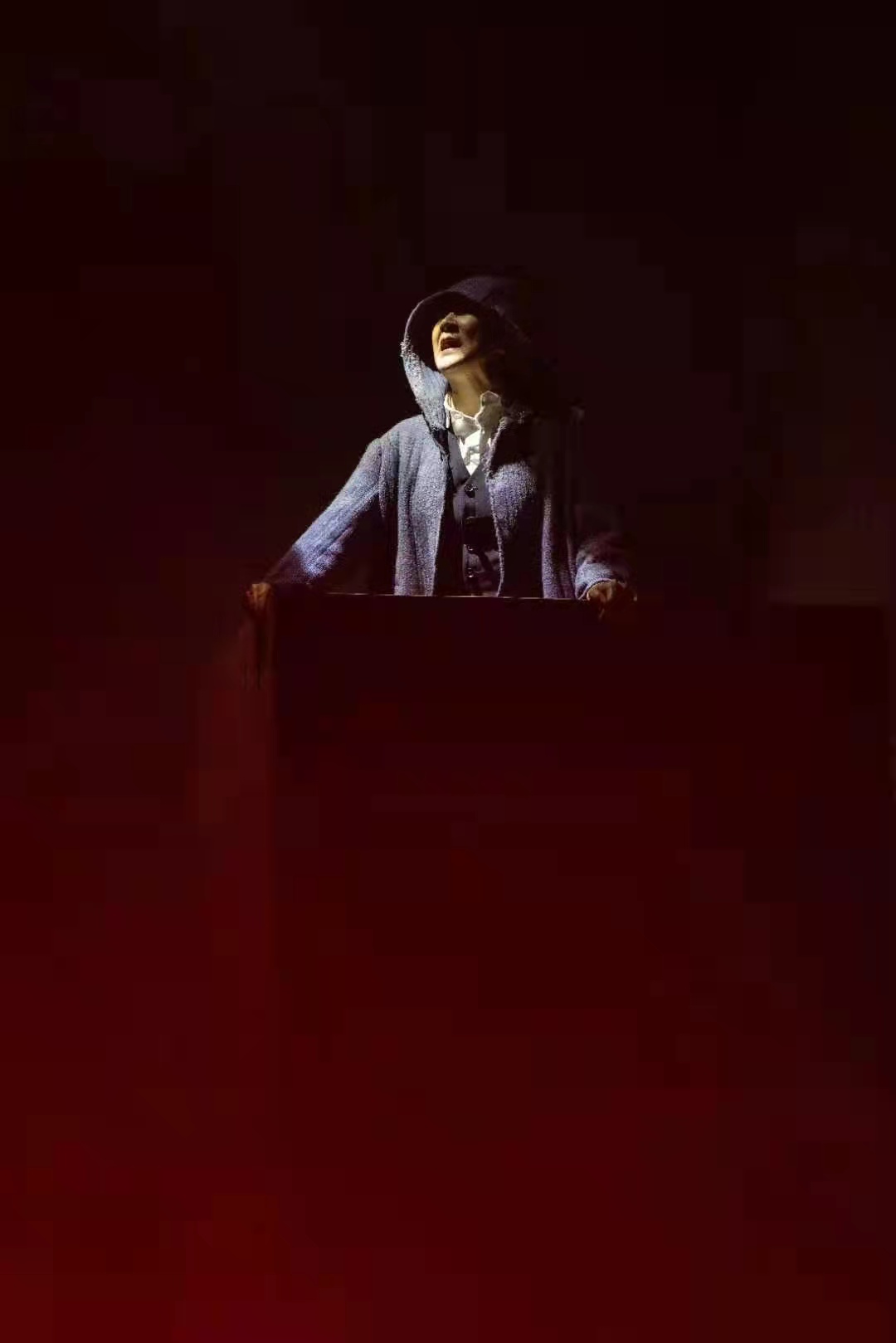
Stage Photo of Hudec
As an independent artist in exhibitions, the most impressive one is the resident performance project The Sensory Tour, which allows her to lead her team to present at the Rockbund Art Museum (RAM) in Shanghai. The work on display was created by American artist Felix Gonzalez-Torres. By combining theater with sound, architectural structures and history, Fangling presented the audience with an interactive, immersive audio-visual feast and a thought-provoking journey[1]. After being performed for three consecutive nights, The Sensory Tour by Fangling was cheered as a museum version of Sleep No More by some audiences. Months before the show, Fangling conducted an in-depth research on the exhibition site, its history, story, the building structure, the space layout, and the changes that would occur when the exhibition commenced. "I believe that Performance Art is not about physically sitting or standing at a certain spot to perform. As an artist, what do you want to express? What is your reflection of society? What is your perception of this world around you?" The project features the exhibition of Felix Gonzalez-Torres' works, but reflects Fangling's perception and understanding of space, sound and society, "I can create new ideas and scenes with artists from different fields, such as sound and new media, which is great fun."
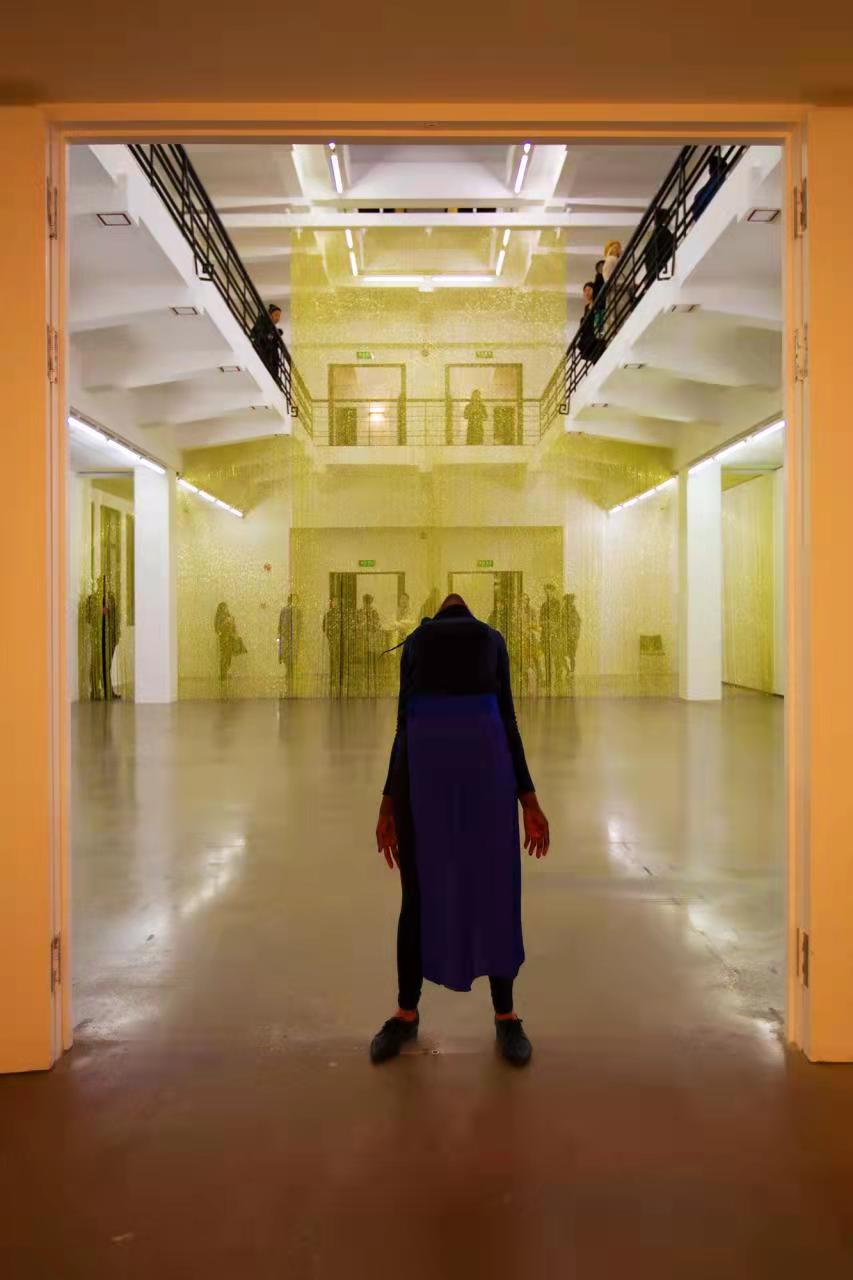
Performance Photo of The Sensory Tour
Understanding the Unknown and Embracing the Changes
The fast-changing environment shaped by digital media under the COVID-19 pandemic has dramatically changed traditional art performances. For example, performances are no longer limited to traditional theaters and exhibitions, but can be presented via new cloud-based channels such as Zoom Theater. Fangling said, "My good friend Director Zhou Ke said that a good artist needed curiosity. The world is changing and leaving us with many unknowns. My goal is not just to do one project after another or merely to let more people know about me." As a creative artist, Fangling is driven by curiosity to deeply understand these changes. When faced with challenges, she wants to overcome them by transforming herself." The theater has changed, so has the venue and space. People now interact more with computers and even AI instead of people. These are radical changes," she says, "Of course, people can say, 'I don't like this change,' but the change is there and still evolving at a very alarming rate. Don't I need to deal with it?" Fangling discovered that the curriculum and research focus of the master program in Interactive Media Arts are designed to encourage students to discover the unknowns of the new media era, and provide students with more options to deal with the changes, which are the main reasons why she chose the IMA program.
Culture and language also played a role in Fangling’s decision to join the program. "Language is a particularly important medium of communication. For example, it would be difficult for a Chinese actor to speak foreign language when playing a foreign character in a drama because the language sets a high bar." In the performance of A Letter to a Child Never Born, Fangling spoke French and English in addition to Chinese. She hopes to use this chance to further collaborate and communicate with participants from six other countries in the program, gaining inspirations and insights initiated by cultural diversity.
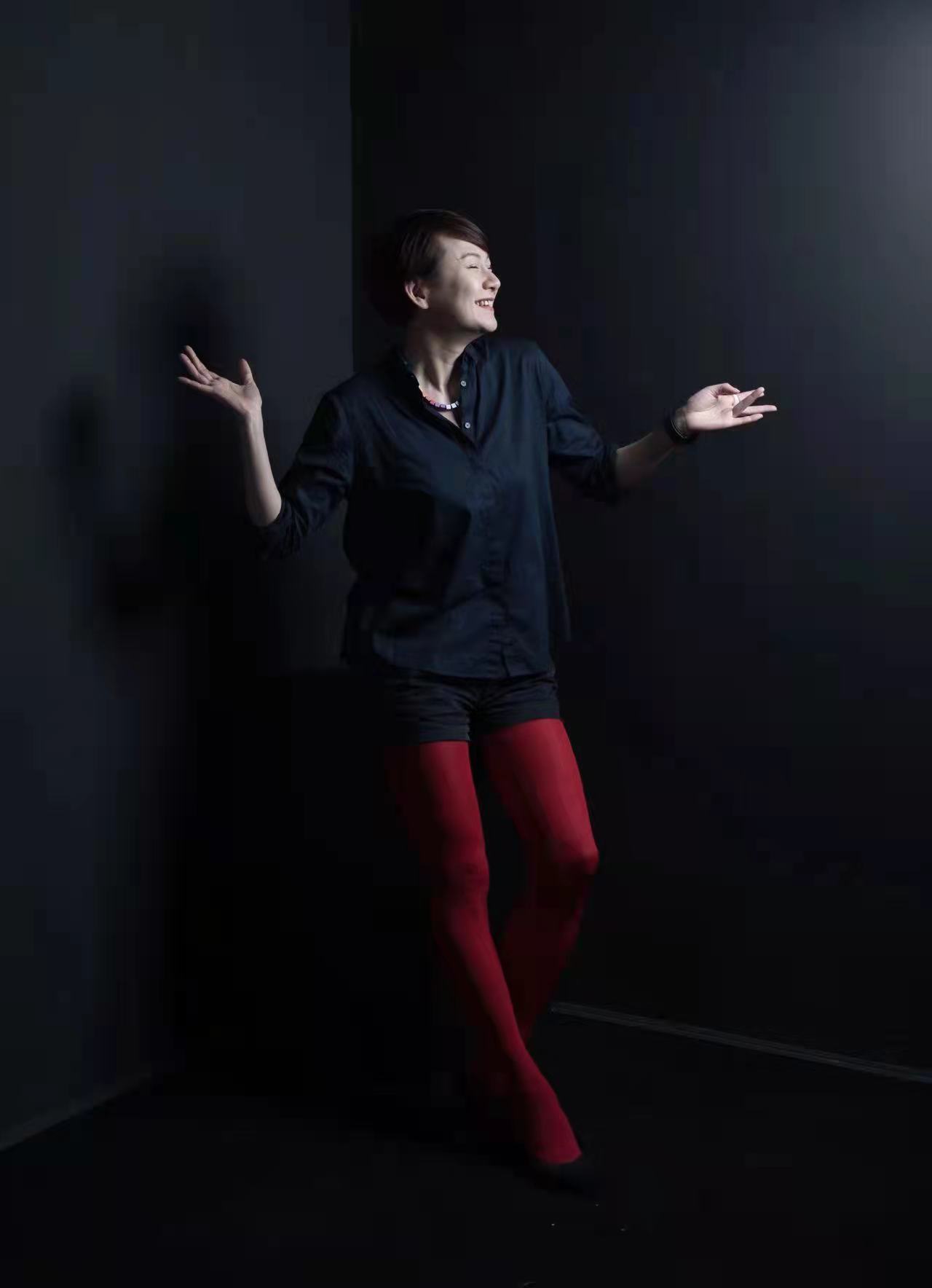
An Inspiringly Creative Student
Director Zhou Ke, one of Fangling’s close friends, commented on her, "Fangling has a creative mind and is willing to break the rules." This kind of creative thinking and imagination is also fully reflected in Fangling's study in the IMA program.
"Fangling is imaginative. When discussing with her, you would worry about not having enough time for the discussion." Jesse Yu, who is also in the IMA graduate program, said, "My first course project was a collaboration with Fangling, and the project had three key words: cyborg, bioart, and post-human. Because of the pandemic, some students took online classes and the project also had to be presented via Zoom. The time to complete the project was tight, so it required us to generate a lot of ideas in a short period of time, which Fangling successfully did." Particularly, Jesse emphasized their innovative usage of Zoom, " The students in the group thought it was not very interesting to just put the Zoom aside for video recording. Thanks to Fangling's idea, the perspective of Zoom was written into the story as a camera, adding some documentary elements. At the end of the video, the person operating the camera was also featured in the story, which was very interesting.” In this way, Fangling and the group members presented students with a special multi-dimensional visual experience.
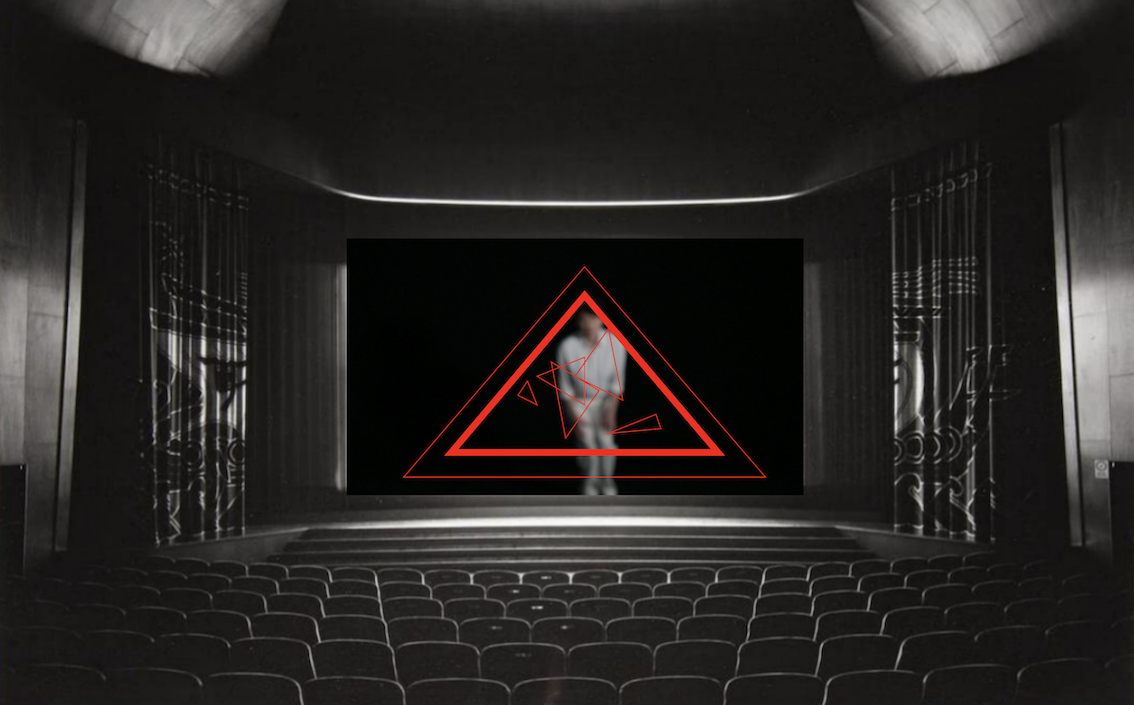
Team Project Presented Via Zoom
Stay Curious and Keep Exploring
In the course of continuous in-depth study, Fangling has a new interpretation of "interactive media arts". "At the beginning, I only agreed with ‘interaction' out of my personal experience. I think that people performing together is a process of constant interaction." When Fangling first approached the part of "media" in the IMA program, she struggled a bit. Learning "media" involves programming in a computer interface. "programming was completely a new thing to me, but curiosity drives me to crave more." The new knowledge satisfied Fangling's curiosity and also triggered new questions. In the process of overcoming difficulties and mastering programming knowledge, Fangling had a deeper understanding about "media ''. "Later I found that the ideas of media and interface are very intriguing. Interfaces are everywhere – isn't human an interface? People may be the most important interface. If we take a closer look, body organs, such as hands, could also be interfaces. Besides, perception itself is another interface; thinking is an interface; dialogue is also an interface." Interestingly, other new thoughts and topics sprang up, for example, "What exactly is post-human? Maybe a post-human no longer has a physical body, but can we deny its existence as a human being?" Perhaps through further learning and thinking, Fangling will have new answers.
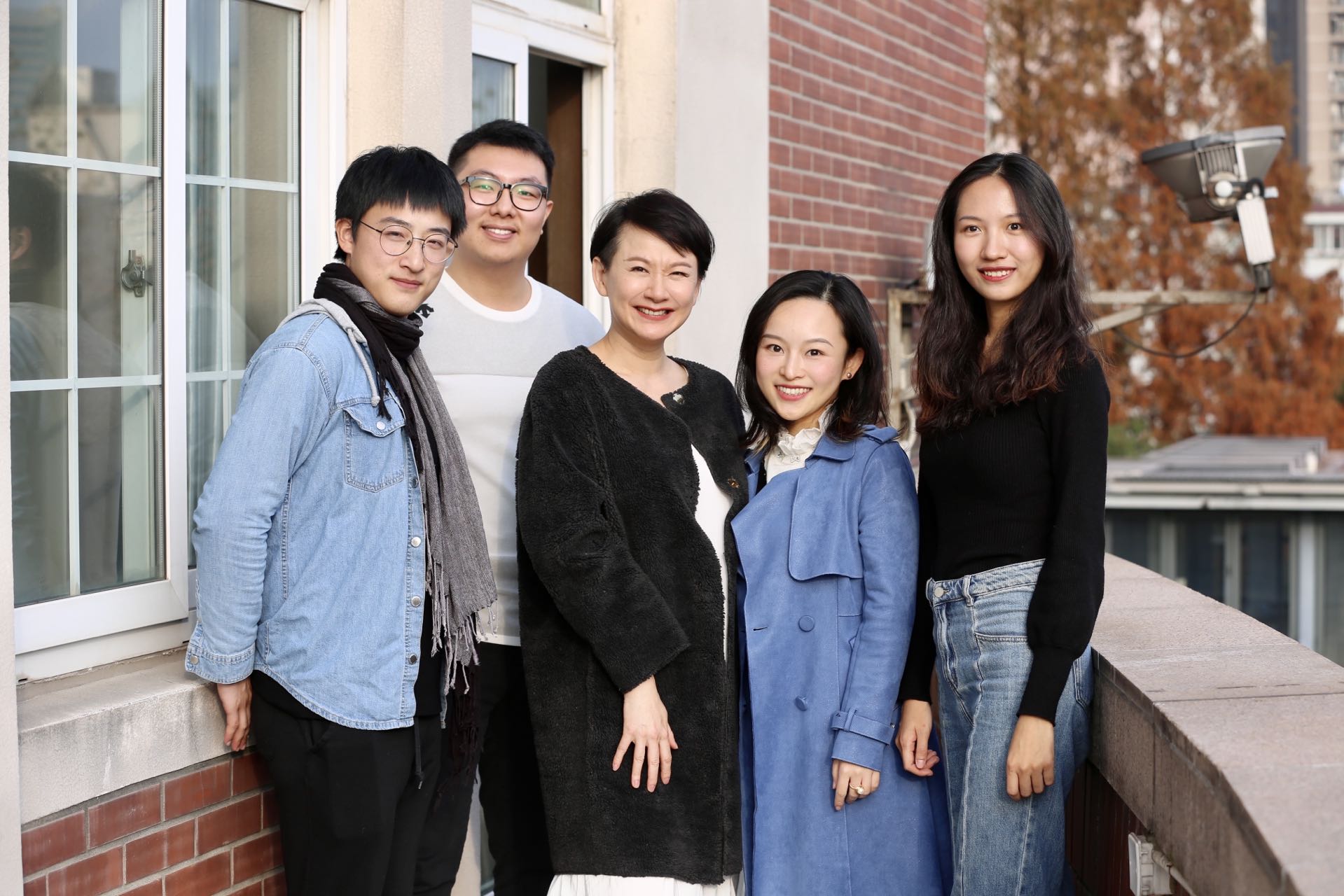
Fangling with her Classmates and Staff of NYU Shanghai
"The IMA graduate program is like a window that is half open, through which a gentle breeze blows. When I approach the window and open it, I find a door. When I open the door, there is a corridor, and it leads me to a new room," Fangling uses this analogy to describe the IMA program, "It constantly gives me new scenarios, new expansions, which are very important to me."


